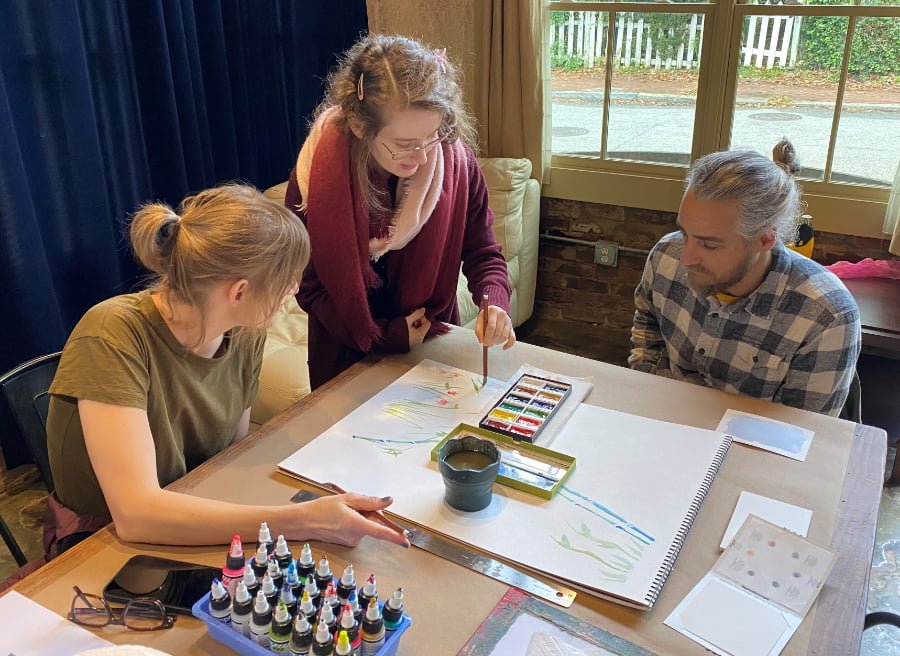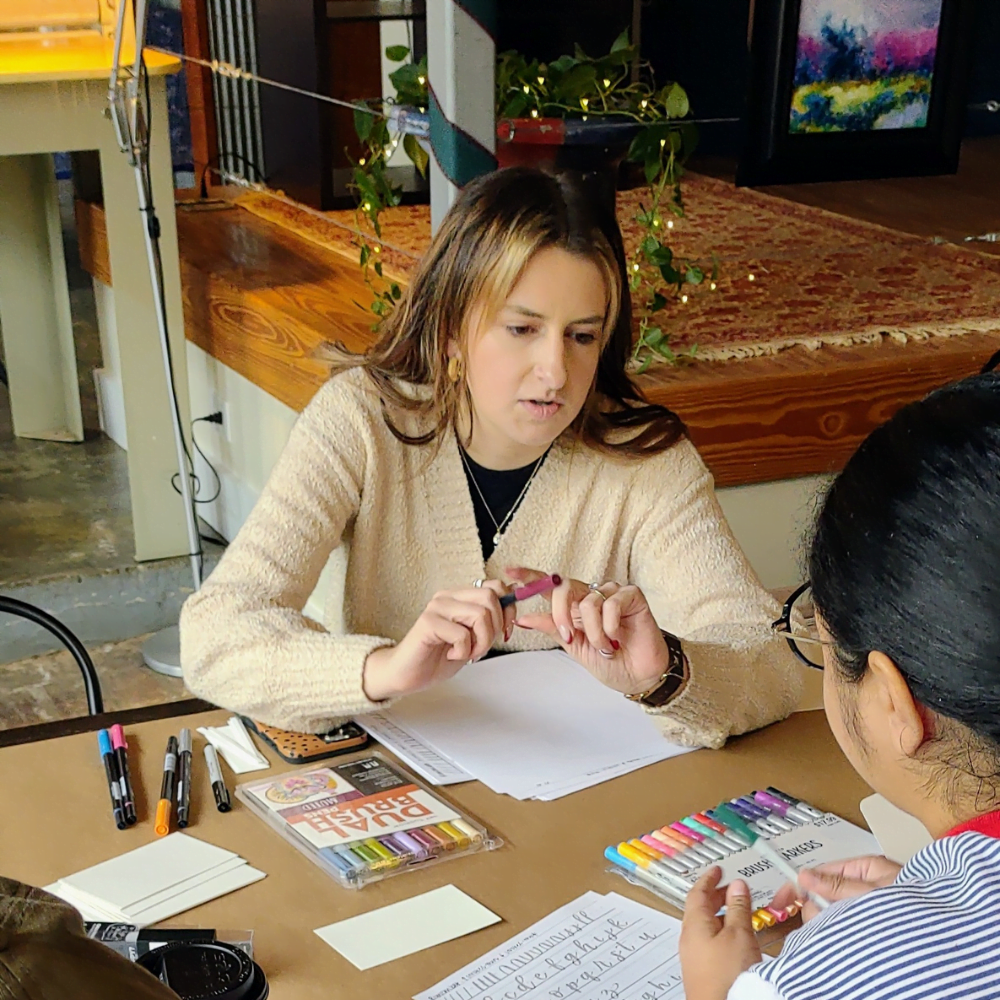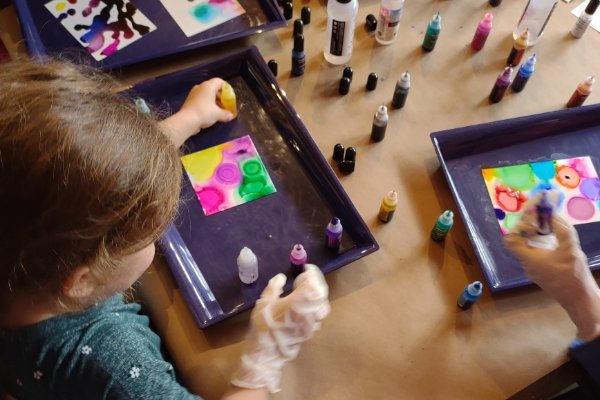Talk Therapy
Talk Therapists each bring a different set of skills based on their training to our practice. Collectively, we offer multiple evidence-based individual and group therapy treatments for lasting change. Our therapists may use these techniques singularly, as in a DBT skills group or integrative, being fully aware and mindful of your needs so that you can make conscious, proactive choices to identify your values and what matters to you. Our practice is for those coping with depression/anxiety, grief, or trauma. They may also struggle with relationships, identity, social stigma, and medical health challenges. Please read about the evidence-based treatments below.
An evidenced-based therapy that is structured and used in individual and group therapy. It addresses a person’s mind, body, and spirituality. DBT is a modified type of cognitive behavioral therapy (CBT). Its main goals are to teach people how to live in the moment, develop healthy ways to cope with stress, regulate emotions, and improve relationships with others. Research indicates that DBT is successful for people experiencing depression, anxiety, bulimia, binge eating, bipolar disorder, post-traumatic stress disorder, and substance abuse. Dialectic Behavior Therapy helps improve motivation for change while enhancing capabilities by generalizing newly learned skills/behaviors to your everyday life and relationships.
An Evidence-Based Treatment created by Tom Lynch, originally trained and a partner within Marsha Linehan’s DBT Team. RO DBT particularly addresses social signaling deficits that inhibit connection which leads to emotional loneliness and is caused by what has been coined “overcontrol.” Overcontrol (OC) targets a spectrum of disorders characterized by excessive self-control.
Being fully aware or paying attention. Sometimes, we go through our daily lives on autopilot. We do not spend much time in the present noticing what is happening right now; without judgment or trying to fix it. Your body and mind send you constant signals. If your focus is elsewhere, you likely don’t notice the signals that begin as whispers. When you miss the whispers of an early discomfort or a sad feeling, you lose the opportunity to make a change before it grows into real physical pain or mental health issues. Being mindful, or aware, allows you to make conscious, proactive choices about every aspect of your health. Mindfulness connects you to each component of your well-being and your whole self.
A form of body-centered therapy that looks at the connection of mind and body and uses both psychotherapy and physical therapies for holistic healing. In addition to talk therapy, somatic therapy practitioners use mind-body exercises and other physical techniques to help release the pent-up tension that negatively affects a patient’s physical and emotional wellbeing.
A structured therapy that encourages the patient to briefly focus on the trauma memory while simultaneously experiencing bilateral stimulation (typically eye movements), which is associated with a reduction in the vividness and emotion associated with the trauma memories. Eye Movement Desensitization and Reprocessing (EMDR) therapy is an extensively researched, effective psychotherapy method proven to help people recover from trauma and PTSD symptoms. Ongoing research supports positive clinical outcomes showing EMDR therapy as a helpful treatment for disorders such as anxiety, depression, OCD, chronic pain, addictions, and other distressing life experiences.
To request a Therapy appointment, visit our team page
Art Therapy
Art Therapy is an integrative mental health therapy that enriches the lives of individuals, families, and communities through active artmaking, creative processes, applied psychological theory, and human experience within a psychotherapeutic relationship.
Art Therapy allows clients to express their thoughts, feelings, and behaviors using various art methods such as painting, sculpting, or drawing. Creatively working with art materials makes for healthy emotional expression and is related to one’s ability to process information. The art therapist will guide the client to use various art mediums during creation, encouraging them to consider other possible perspectives and enhancing their processing abilities. The completed artwork mirrors the client (creator) and is regarded as a third member of the therapeutic relationship between the therapist and client. The art therapist encourages the client to use curiosity instead of their critical voice to consider the finished work. With this guidance, the client sees themselves differently and gains insight.
To request a Therapy appointment, visit our team page
Coaching & Support
Health is about all aspects of your life — your body, work, relationships, emotional energy, and much more. Wellness is a lifestyle that produces well-being. We have an evolving focus on health and wellness that touches many support disciplines.
Individual Coaching serves a whole host of essential functions that are vital for enabling people to make progress in their lives, such as:
- Create a safe, confidential, and non-judgmental space for people to talk through meaningful topics/decisions/problems/opportunities in their lives to gain clarity.
- Work with clients to identify their values, goals, and ideal outcomes
- Help clients better understand the issues preventing them from progressing in their lives
- Provide accountability for clients to accomplish their goals and realize sustainable growth
Support Group members have similar feelings, worries, everyday problems, or treatment decisions. We offer support groups for joint physical health, mental health, and identity experiences. Participating in a group allows you to be with people who likely have a common purpose and the potential to understand you.
The benefits of participating in a support group may include the following:
- Feeling less lonely, isolated, or judged
- Reducing distress, depression, anxiety, or fatigue
- Talking openly and honestly about your feelings
- Improving skills to cope with challenges
- Staying motivated to manage chronic conditions or stick to treatment plans
- Gaining a sense of empowerment, control, or hope
- Getting practical feedback about disease & treatment options
- Learning about health, economic or social resources






